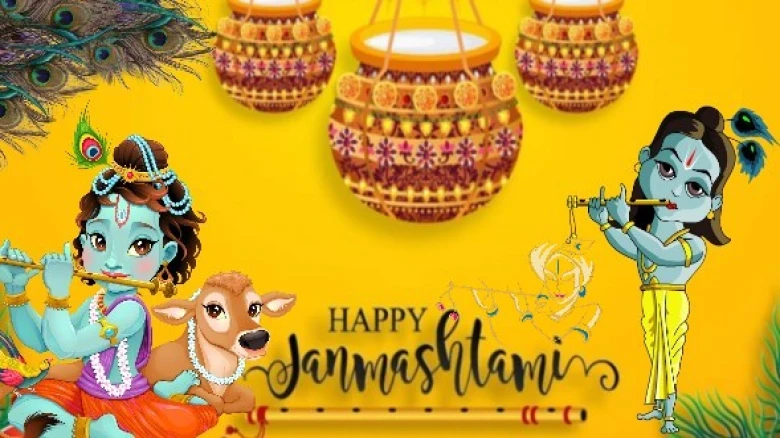Regional

India is once again immersed in the vibrant and spiritually enriching festivities of Janmashtami, a...
Digital Desk: India is once again immersed in the vibrant and spiritually enriching festivities of Janmashtami, a significant Hindu festival celebrated with great zeal and devotion. Janmashtami commemorates the birth anniversary of Lord Krishna, one of the most revered deities in Hinduism. The celebration is especially grand in the sacred cities of Mathura and Vrindavan, where Lord Krishna spent his childhood.
Historical significance
The roots of Janmashtami can be traced back to the ancient Indian scriptures and legends. Lord Krishna, the eighth son of Devki and Vasudeva, was born on the eighth day of the dark fortnight in the Bhadrapada month. He came into this world to vanquish evil and establish righteousness. The story of his birth is one of divine intervention and sacrifice.
Krishna's parents, Devki and Vasudeva, were imprisoned by his maternal uncle, the tyrant King Kansha, who had a prophecy that he would be killed by Devki's eighth child. In a bid to protect the infant Krishna, Vasudeva managed a daring escape from the prison and took him to the safety of Vrindavan, where he was raised by Nanda Baba and Yashodha as their own.
Lord Krishna's life is intricately woven into the fabric of Hindu mythology and the epic Mahabharata, where he serves as a pivotal figure and imparts timeless wisdom to Arjuna in the form of the Bhagavad Gita.
The significance of Janmashtami
Janmashtami is observed with profound devotion by Hindus across the country. Devotees keep day-long fasts, engage in prayers and bhajans (devotional songs), and visit temples dedicated to Lord Krishna. One of the most awaited and exciting events associated with this festival is the reenactment of the famous 'Dahi-handi' or butter pot-breaking ceremony, symbolizing Lord Krishna's mischievous childhood.
Janmashtami 2023: Date and Time
Janmashtami in 2023 holds a unique significance due to the alignment of celestial events. According to Drik Panchang, this year's Janmashtami will span consecutive days. The Ashtami Tithi begins at 3:37 PM on September 6 and concludes at 4:14 PM on September 7, while the Rohini Nakshatra commences at 9:20 AM on September 6 and concludes at 10:25 AM on September 7.
This celestial alignment adds an extra layer of spirituality to the festivities, drawing even larger crowds to temples and celebrations in Mathura, Vrindavan, and across India.
Celebrating the Divine Grace
Janmashtami is a time for devotees to immerse themselves in the love and devotion for Lord Krishna, who is revered for his teachings, playful childhood, and divine wisdom. It is a time when communities come together to celebrate the birth of a beloved deity, fostering unity and spirituality among all who partake in the festivities.
As the echoes of devotional songs and chants fill the air, and the aroma of sweet offerings wafts from temples, Janmashtami continues to be a source of joy, faith, and inspiration for millions of Hindus worldwide. It serves as a reminder of the enduring power of spirituality and the eternal message of Lord Krishna, which transcends time and boundaries.
Leave A Comment